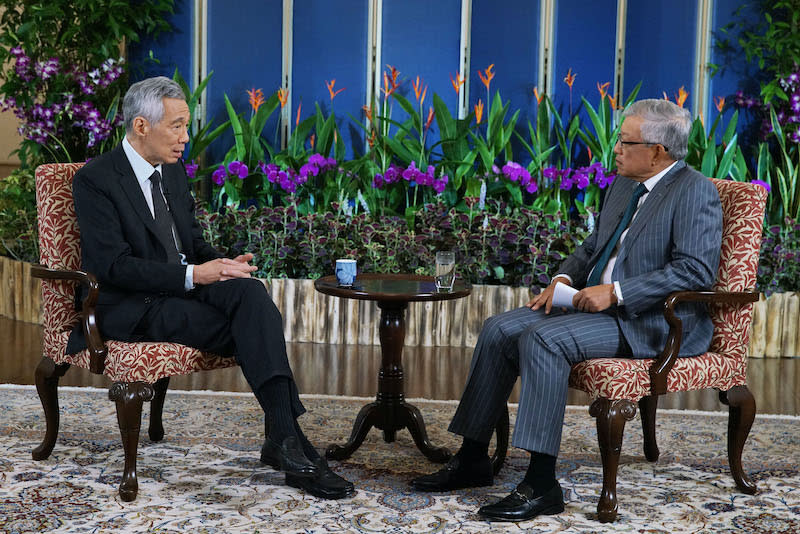US-China relations will still have 'many difficult issues' under Biden: PM Lee

SINGAPORE — While there will likely be more multilateralists in the incoming administration of US president-elect Joe Biden, there will remain “many difficult issues” to deal with in the US-China relationship, said Prime Minister Lee Hsien Loong on Wednesday (18 November).
This is because attitudes on both side have hardened in recent years. In the US, there is a bipartisan consensus that China is a strategic threat, while many observers in China think that the US is out to thwart their development and rise.
Nevertheless, Lee expressed hopes for a “more coherent, systematic approach” by the Biden administration, one which takes into account a broader range of US interests, with the US taking a leading role as the most powerful country in the world.
“Taking care of America’s interests does not mean having to ride roughshod over other countries’ interests.”
Speaking in a pre-recorded dialogue with Singapore Business Federation chief executive officer Ho Meng Kit on “The Future of Global Growth” for the APEC CEO Dialogues 2020, Lee was asked if the recent conclusion of the Regional Comprehensive Economic Partnership (RCEP) meant that the Asia-Pacific Region (APEC) is getting back on track.
RCEP is a free trade agreement between Asia-Pacific nations such as Australia, Brunei, Cambodia, China, and Singapore. The PM noted that it took eight years of negotiation before the agreement could be signed.
And progress in APEC has been slow partly because the United States has wanted to deal with issues on a bilateral, rather than multilateral, basis, and has not been supportive of trade as a win-win proposition. “The attitude of the Trump administration is that this is a win-lose proposition. If I have a trade surplus with you, that is good for me. If I have a trade deficit with you, that is bad for me,” said Lee.
While expressing hopes that the new Biden administration will be more supportive of the World Trade Organisation (WTO) and APEC, he doubted that it would be keen on joining the Comprehensive and Progressive Agreement for Trans-Pacific Partnership (CPTPP), since this was dependent on domestic politics in the US.
“I think that will take a while, but I hope that there will be a more constructive approach – one where countries work together rather than against one another, and one where we aim to harvest win-win gains, rather than treat this as a win-lose proposition.”
Stay in the know on-the-go: Join Yahoo Singapore's Telegram channel at http://t.me/YahooSingapore
Related stories:
Explainer: What happens now the RCEP trade deal has been signed?



